#even though it feels wrong to prioritize secrecy over HIM
Note
Hello wackus, my internet finally let me load ao3 and by gosh am I so delighted because those 2,895 words wrecked me!!!
It can only be assumed Adrien found out, stopped (or killed hehe) his dad and has just be floating since. It is so potent in his every word and action yet Ladybug is so blind to it!
Her annoyance at first, the fact they’re still dancing around each other even when they’re dating “another person”, the platonic marriage and the guilt. All the guilt he’s shouldering because he doesn’t know and she can’t know, Ladybug’s insists no one can know.
“It was just like that,” he sighed, addressing the night. “In my dream.”
Ladybug watched him, feeling the same shadows that had claimed him consume her too. “What happened then?”
“I woke up,” Chat Noir murmured. “My father woke me up.”
FAVOURITE LINE OF THE YEAR. So badass. So sad
The subtext, the little drama queen he is. Of course he’d say something so dark and foreboding like that in the same conversation he asked to platonically marry LB and have platonic children together.
<3<3<3<3<3<3<3<3
helloo my dear sizzle <33 i'm so happy to hear you liked my little wish fulfillment angst fic <333
i've seen a ton of speculation about just what exactly is going on with chat noir in rest your head (upon my shoulder) hehe. all i can say is, i wrote it to be pretty open for reader interpretation >;)) there's definitely evidence to support a couple of theories isn't there? yours are pretty solid, 100/10, excellent job close reading!
#honestly i just really enjoyed making chat noir cry on ladybug's shoulder#like she loves him so much she can't just turn her feelings for him off#but also that's exactly what she's trying to do#meanwhile she's caught him in the midst of a mental break#and she can't ask no matter how much she wants to#even though it feels wrong to prioritize secrecy over HIM#heuegrueigurh i just love ladynoir so much#endless angst potential#very happy you liked it sizzle i was grinning reading this!#miraculous ladybug#ml fanfic#miraculous fanfic#rest your head (upon my shoulder)#ladynoir#selkie also called it floor time in the fountain so that's what i named it on google docs LOL
5 notes
·
View notes
Text
Max Goodwin and Randall Pearson: The Well-Meaning, Incredibly Self-Centered Leading Men We’ve Grown to Love.
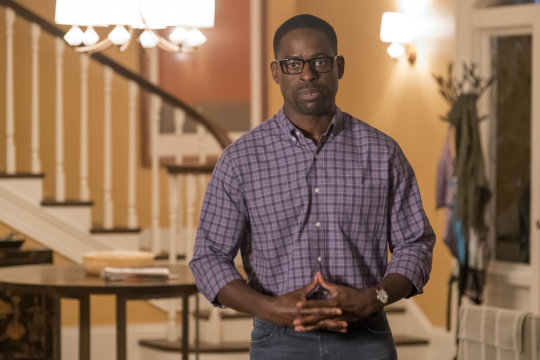
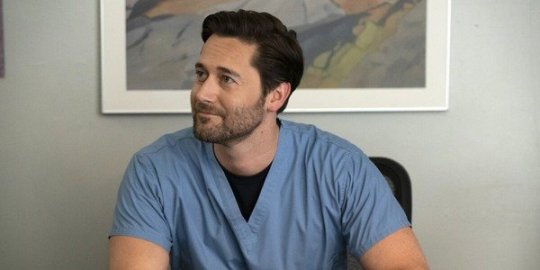
Hey fam! Like I said, I’ve been writing a ton of meta lately and this is another one that’s just been sitting in my drafts. It’s basically a This Is Us and a New Amsterdam meta which is something I haven’t done before but something I want do more of. In my Game of Thrones days I used to write a lot of meta about shows and characters that had similarities so this is fun for me. I hope y’all enjoy this. ALSO THIS HAS SPOILERS FOR BOTH SHOWS!!!!!!!
Without a doubt the two most popular shows on NBC is This is Us and New Amsterdam. And what’s not to love? They’re both emotionally driven, heartfelt, shows that focus on incredibly deep and complex topics. Though one show focuses on family dynamics and the other focuses on the healthcare system, these shows are very similar in more ways than one. Case in point, Max Goodwin and Randall Pearson. The more I watch these two shows, the more I realize how these two characters are so alike!!! These two men are kind-hearted, well intentioned, individuals who genuinely want to make some sort of positive difference. They are incredibly ambitious and always have “bright ideas” and “goals” they want to accomplish and somehow they’re able to meet those goals without ever having to sacrifice their wants and needs. By every definition these men are the “main characters” or the ultimate “protagonists.” These are the folks that we are supposed to root for. At the same time, though these men have many traits to be admired, when you truly look at it both of them can be incredibly self centered and selfish especially when it pertains to their romantic partners and love interests. No matter how appealing you make these characters out to be these men clearly fall under the Behind Every Great Man trope.
The Behind Every Great Man trope has been used countless of times throughout Cinema and TV History that I’m sure that I don’t even have to explain it to you but for the sake of this meta this is how it’s defined.
“Behind Every Great Man...stands an even greater woman! Or in about a hundred variations is a Stock Phrase referring to how people rarely achieve greatness without support structures that go generally unappreciated, and said support structure is a traditionally female role via being the wife, mother, or sometimes another relation. This trope is specifically about a man who is credited with something important, but owes much of his success to the woman in his life.”
This trope usually has a negative connotation (and rightfully so) because the man who often benefits from this is an asshole and unworthy of this type of support!
For example:
Oliva and Fitz
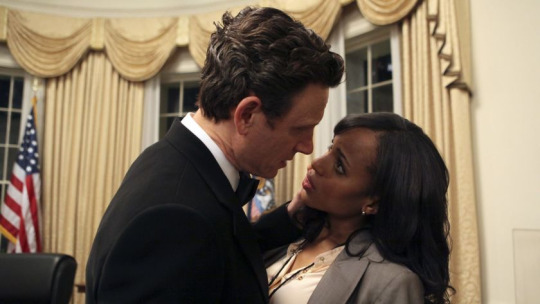
Cristina Yang and Burke
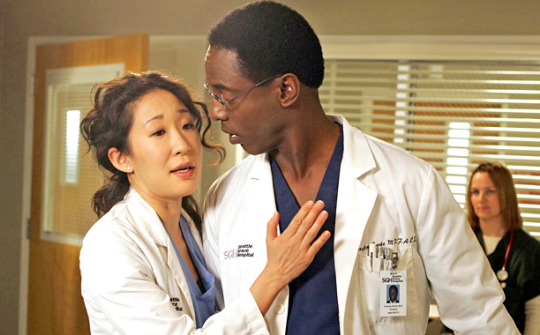
Cookie and Lucious
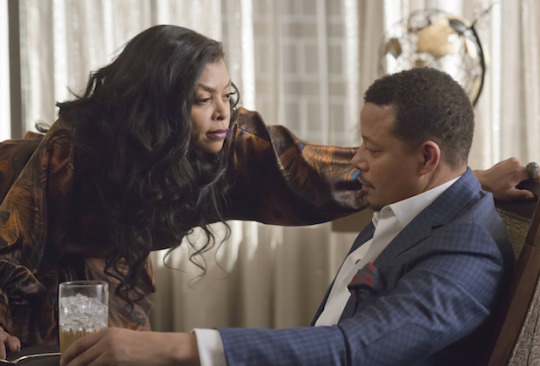
Ghost and Tasha
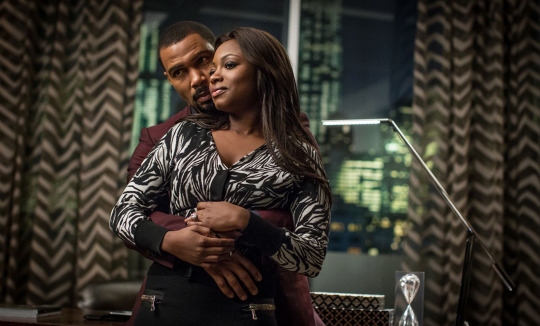
There are countless others but these are a few of the couples that come to mind for me. Randall and Max aren’t comparable to any of these men that are listed above but they are still operating under the same trope. It just looks nicer because Max and Randall are inherently good and inspirational. They are the heroes of the story. I would even argue and say that both men fall under the Chronic Hero Syndrome trope which is defined as
“Chronic Hero Syndrome is an "affliction" of cleaner heroes where for them, every wrong within earshot must be righted, and everyone in need must be helped, preferably by Our Hero themself. While certainly admirable, this may have a few negative side-effects on the hero and those around them. Such heroes could wear themselves out in their attempts to help everyone or become distraught and blame themselves for the one time that they're unable to save the day. Spending so much time and effort saving everyone else can also put a strain on the hero's personal or dating life.”
Just because Max and Randall have these incredibly inspiring aspirations, is it fair that their wives and love interests are always expected to rise to the occasion and support them. Is it ok for their partners to continuously sacrifice their wants and needs because they love these men?
Let’s dive into it.
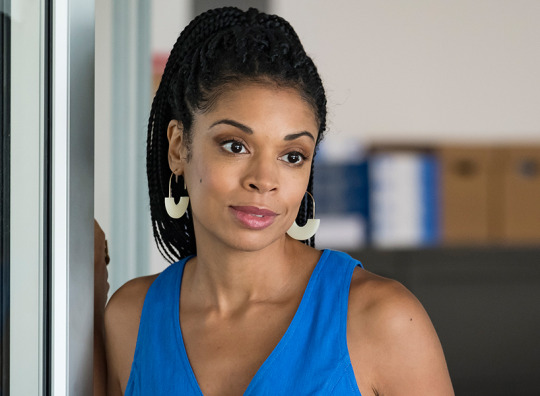
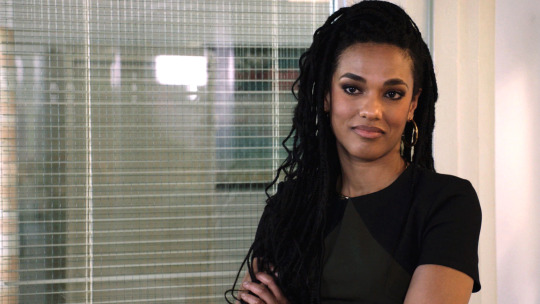
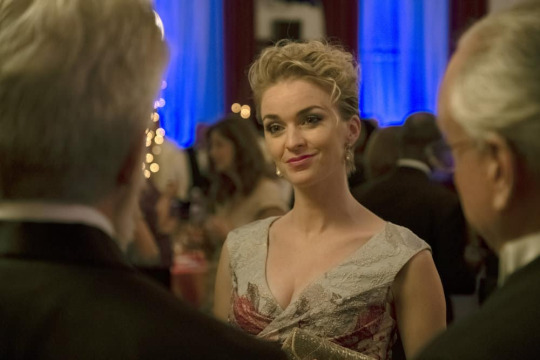
Truth be told, Beth Pearson, Helen Sharpe and Georgia Goodwin had to endure a GREAT DEAL to emotionally support the dreams and aspirations of these men while sacrificing so much of themselves in the process. In media we often see women sacrificing so much of their wants and needs out of love for these male leads and rarely do men do the same thing for their romantic partners and love interests. All three of these women clearly fall under the Act of True Love trope defined as
“The Act of True Love proves beyond doubt that you are ready to put your loved one's interests before your own, that you are truly loyal and devoted to them. Usually this involves a sacrifice on your part, at the very least a considerable effort and/or a great risk. The action must be motivated, not by morals or principle or expectation of future reward, but by sheer personal affection.When your beloved is in dire need of your help, or in great danger, and you do something, at great expense to yourself, for the sake of their safety, their welfare, or their happiness, thus proving beyond any doubt that you put their interest ahead of yours.”
Over the past few seasons we have seen all three of these women truly live up to this trope without any true consequences or accountability from the men they’re making all these sacrifices for. For example, in Beth and Randall’s marriage, how many times did Randall spring an idea on Beth without truly talking to her or considering her wants first? Everyone thinks these two are an ideal couple but she has endured A LOT for Randall.
Randall has spontaneously quit his job, moved his dying biological dad into their home, bought his biological dad’s old apartment building, fostered and adopted a child and also ran for city councilman outside of his district. In all of these decisions, Randall “consulted” Beth about it but at the same time didn’t really consult her. In a way there has always been this expectation of Beth to just go along for the ride with what Randall wants. Is anyone else exhausted from reading that list?! That’s a lot for partner to endure and lovingly support. But Beth has endured and has been Randall’s rock through it all!!! What worries me is that the one time Beth spoke out about her wants and needs of pursuing dance again, he couldn’t match the same energy she was giving him and eventually it led to world war three between them. Though things are looking up in their relationship and he’s starting to support her more, has Randall nearly given to Beth as much as she’s given to him? Absolutely not!
Similar to Randall, Max also had a wife who was a dancer. in fact, she was a prima ballerina. Unlike Randall and Beth, Max relationship with Georgia was rocky from the start. When we were first introduced to them Max and Georgia were separated and rightfully so. Georgia was never Max’s first priority. The hospital always came first in their relationship. He couldn’t even dedicate a full night to her for their proposal. In order to “save” their marriage they decide to have a baby and they both committed to taking a step back in their careers in order to do so. The problem was Max didn’t keep his side of their commitment and took a job to become the medical director at the biggest public hospital in the U.S. She gave up her career to start a family and he totally and completely betrayed her trust. So throughout season one we see them trying to rebuild their marriage but even in the midst of trying to rebuild a marriage based on trust and mutual respect Max still keeps things from Georgia. For several episodes he didn’t tell her that he had advance stages of throat cancer. He only told her when Georgia asked him to move back home. That’s fucked up! Then throughout their pregnancy he was never fully there for Georgia because he was either to preoccupied with the hospital or himself. At the end of it all, Georgia died tragically at the beginning of season two and really had nothing to show for it in her relationship with Max other than her daughter Luna.
Now let’s bring Helen Sharpe into the fold. While all of this stuff was going on with Max and his wife in season one, Max was developing a deep friendship, borderline emotional affair with Helen. Their relationship started out with Helen being his oncologist. As the new Medical Director of New Amsterdam, he swore Helen to secrecy about his diagnosis so that he could still run the hospital. Through that secrecy they eventually formed a deep bond but as his cancer got worse his secret was let out of the bag. He realistically needed someone to step up and run the hospital when he was going through chemo and though Helen already had commitments she stepped up and became his deputy medical director. Somewhere along the lines Max and Helen started developing feelings for each other. As Helen becomes aware of those feelings, she made a choice and decides to remove herself as Max’s doctor. He BITCHES about it but eventually accepts the boundary she’s clearly trying to set. Mind you, as this is unfolding, like Max, Helen is also in a new relationship with her boyfriend Panthaki. As Max’s cancer seems to be getting worse with his new doctor, she goes back on her boundary and decides to be his doctor again. This pisses her boyfriend off because he could already peep the vibe between them and he breaks up with her. When we get into season two, Max’s wife died and Helen set him up in a clinical trail (with a doctor she previously fired) that’s helping his cancer. Unbeknownst to Max, this doctor ends up holding his life saving treatment plan over Helen’s head and in order for his treatment to continue she gives this doctor half of her department!
Helen has sacrificed a lot for Max and now in season three she’s finally prioritizing her current wants and needs first! Like Randall, Max is starting to turn a page and is starting to support Helen and truly listen to the wants and needs that she has. All of this is good but my question is did any of these women have to sacrifice so much for the men in their lives to get a clue?
Why is it that this is a trope we see in media time and time and time again? Even if these men are good, why don’t we still keep these male characters accountable when they put their significant others in these situations that are clearly not fair? I’ve watched countless tv shows and I’ve seen a lot of tv couples but I think I have only come across one couple where the male counterpart has selflessly loved his significant other and has always put her needs above his own.
That character my friend is none other than PACEY WITTER
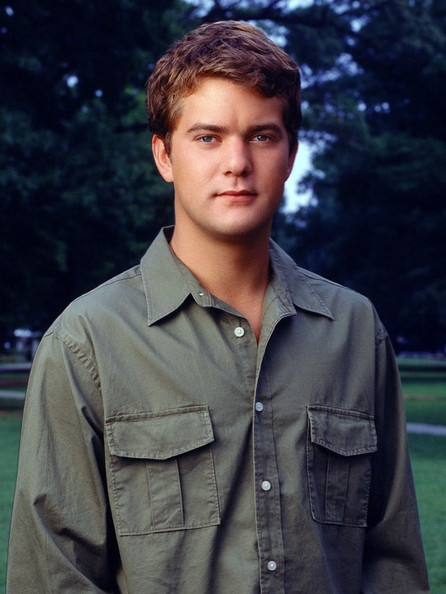
I might be mistaken but I think Joey and Pacey are the most popular ship in tv history and honestly, rightfully so! This is only example I can think of where the male in the relationship so willingly puts the wants and needs of his partner first. It is a completely selfless and sacrificial love. He never wants to hold her back and he never asks her to compromise her wants or needs for him. That’s why I think so many women love Pacey because in a sea of TV relationships, Pacey Witter is a fucking unicorn.
So to wrap this up does this mean that I hate Randall Pearson or Max Goodwin? No! I adore them. I love both of their characters so much. I just think that when we see the media continuously play out the sacrificial wife/love interest for the sake of their male counterparts, it should be called out. I’m all about sacrificial and selfless love but it should come from both sides.❤️❤️❤️
Anyway I hope y’all enjoy this! As always my DMs are opening here or on Twitter @oyindaodewale
#new amsterdam#sharpwin#This Is US#max goodwin#helen sharpe#randall pearson#beth pearson#georgia goodwin#pacey witter#joey x pacey#new amsterdam meta
89 notes
·
View notes
Text
Fic: Past Lives, Chapter 10/?
On AO3
Chapter Ten
Jocasta sat in her quarters, legs crossed, eyes closed, in a posture of meditation. But meditation had brought little clarity, and so it was time for logical thought. They had found many disturbing things that would seem to support Finn’s stories, but it was all circumstantial. Nothing that would hold up in a court of law. Nothing that a sufficiently glib politician could not explain away. Nothing that could not be simply a corrupt, power-hungry man who cared more for his own power than for the ideals of democracy. Nothing that proved he was a Sith—and nothing that disproved it, either.
So. If Finn was right, and they failed to act, they and the galaxy were doomed. If Finn was wrong, and they acted, the Order would be humiliated and face deep sanctions.
That is, if they acted … publicly.
The question was, what private actions could they take? The Council had already updated the Temple emergency plans for how to respond if the Clones should attack the Temple, and decided that although they were a target here, vulnerable people such as the injured, the elderly, and the young would be even more of a target if they were relocated and Palpatine were to hear about it. And they could not guarantee that he would not. Getting that many people out of the Temple would be hard to conceal.
Jocasta narrowed her focus. There were others who could plan for the safety of the order as a whole. Her responsibility was narrower. If the Order fell, so would the archives. And even if the people survived, any rebuilding would be much easier if they had the appropriate reference, training, and historical materials.
The Archives were massive, and could not possibly be moved in the time available without it being immediately obvious what was happening. But … a portion of them could. If she narrowed the focus to the specifically Jedi texts, and only the most important of those, it might be possible to pare the list down to a manageable number. Holocrons were some of the most tightly-packed data carriers available; if she eliminated the holographic guardian, she could fit many more texts in a single holocron than on a book disk of the same size. Jedi going off-world could be given them and told not to mention them to any but another Jedi.
Surely some would survive.
Barriss Offee listened quietly and calmly as Vokara Che explained that there was a chip inside the brains of the clone troopers whose function they did not know, but which was suspected of having programs that could override the clones’ wills and force them to do any number of terrible things. As Master Che explained that they could only study and heal the problem with the greatest secrecy because there was a chance—a slight chance, and probably only a fantasy—that the chip had been emplaced by the Chancellor, as part of a plan to overthrow the Republic and destroy the Jedi.
Barriss’ demeanor was no surprise to those around her, because Bariss did everything quietly and calmly. Barriss was a model Jedi, and had been known to be such since she arrived in the crèche.
If only they knew, Barriss reflected dimly. She was not calm. She had never been calm. She had learned iron control because a blank face and a quiet Force-presence won praise from the Masters, if not from her peers. She’d never been able to make friends among her peers, and so she had focused on a more attainable goal. And now, she was very, very, very good at hiding her feelings, even from herself.
She couldn’t hide them from herself any longer.
It fit. It all fit, she realized dimly. All the horrible things she had seen in the war, all the ways in which her fellow Jedi—her Master, the Council—had fallen short of the ideals she had been taught as a child. All the senseless, useless pain and misery. All the evil. The Jedi were complicit, but they were not the root of it. They were just tools duped by the mastermind. It was Palpatine who had been behind it all along. Palpatine, who had prospered while everyone else suffered. A tide of rage rose within her, but she forced it back into its cage, where no one but she could feel it.
Nothing Barriss had ever said had made one Sith-damned bit of difference. The whole Order had been all too willing to throw itself away and destroy everything good that had ever been a part of it. She had pointed out every problem, every place the Jedi were falling short, and at best people had sighed and agreed that it was unfortunate, but that nothing could be done.
Usually, they attacked her for not supporting the war effort.
Barriss had given up talking. Nobody listened to words any more, all they could hear was violence. Well, Barriss was a Jedi, her weapon was her life. Few people knew violence as intimately as a Jedi did. All that she was lacking was a target, something that would make people stop and take notice. She’d begun to wonder if she shouldn’t just blow up the Temple itself.
But it wasn’t the Jedi’s fault at all, was it? It was Palpatine’s fault. If the one pulling the strings died, then everything would stop. Even if he wasn’t a Sith, even if the chips in the clones’ brains were entirely benign, it was all his fault. He was the one who had failed to find a compromise the Separatists could live with. He was the one who had failed to make peace with them. He was the one who prioritized the war over everything else. He was the one who demanded the Jedi take charge of the war effort. He was the reason she, a healer, had ever been in combat at all.
She could get a bomb in to the Senate. They never paid enough attention to biological threats; all she needed was a person who had business in or near the Chancellor’s office during working hours.
Palpatine was a great and good and kind man. He could not be the mastermind behind the war; he could not be a Sith. Anakin couldn’t believe it. No amount of meditation calmed his thoughts, and it was a good thing Ahsoka wasn’t here to see how distracted he was, because he was setting a terrible example of what a Jedi should be.
And yet … Finn wasn’t lying. The Force sang with his sincerity.
There was something else, though, that Anakin couldn’t stop thinking about. Palpatine was the more immediate threat, and in all the worry over the possibly-impending doom of the Republic and the Jedi and the clones, everyone else seemed to have forgotten Finn’s reaction to meeting Anakin.
That, at least, was something he could do something about.
He invited Finn to his tent, and turned on the white noise generator. He’d tinkered with it himself. Nobody was going to overhear anything Anakin didn’t want them to.
“So, Finn,” he said, “Tell me about Luke Skywalker.”
“He’s a legend,” Finn said. “He was the last Jedi of the old Order, hidden on some backwater world and trained in secret, and he killed the Emperor and Darth Vader both. He was a fighter pilot in the Rebellion, too, he led Rogue Squadron, which was the greatest squadron of the rebellion. He personally shot down the first Death Star. After the war, after the New Republic was formed, he started a school for Jedi. One of his students—his nephew—turned to the Dark Side and slaughtered the rest of the students before fleeing to the First Order. Master Skywalker disappeared, and nobody heard from him for almost a decade before my friend Rey found him.”
Anakin folded his arms, trying to take this in. Given the timing, this Luke Skywalker would almost have to be his son. Skywalker wasn’t an uncommon name in the slave quarters of Tatooine, but he’d never heard of another Skywalker anywhere else in the galaxy. After he was found, the Council had sent a Jedi to search for any other Force-sensitive younglings in the worst parts of his home planet, but hadn’t found any.
Padmé was too consumed with the war effort to even think about children until after the war was done, but Anakin sometimes got through the grimmer parts of the war by fantasizing about having a life with just him, and Padmé, and children, in a house on Naboo.
Was that what happened? Did he and Padmé escape the destruction and run away and hide together? Was there hope and brightness even in the grim future Finn painted for them? It wouldn’t be so bad, if they were together, if they could raise a family together.
“His nephew?” Anakin asked. Did he and Padmé have multiple children, then?
“Yeah.” Finn nodded. “His sister Leia’s kid.”
Two kids! That was great!
“Hey, can I ask you a question about names?” Finn asked.
“Names?” Anakin parroted.
“Yeah,” Finn said. “Stormtroopers don’t get names at all, and I’m still kind of confused by all the different ways humans do names. Skywalker is a family name, right? How do you decide which family name your kids are going to get? Mother’s name? Father’s name? Something else?”
“Skywalker can be a family name,” Anakin said. “I was born a slave on Tatooine, and lots of times the masters call someone a name they don’t want to have. Skywalker is also one of the names that if you don’t have a family name—or you don’t like the one you have—it’s one that anybody can claim, and sometimes people get adopted into it, too. My mother called herself Skywalker, so it’s my name, too.”
“Oh,” Finn said. “So you’d pass it on to your kids?”
“I’d like to,” Anakin said. “It’s all I have left of my Mom.”
“Then do you know why Master Luke’s sister has a different last name?”
Anakin frowned. He and Padmé hadn’t ever really talked about names for any hypothetical children they might have; they’d barely even talked about the possibility that they might one day have children. “Maybe my wife wanted her to have her name?” he said. He didn’t know anything about Naboo naming customs, he realized. Which last name would it even be? Amidala was her political name; it had been a new name created just for her when she was elected queen. Did it pass to her kids or did it end with her? Would she want the kids to be named Naberrie like the rest of her family? Finn would probably know, he realized. “What was the name?”
“Leia Organa.”
comments Comment? https://ift.tt/2T8SAhd
4 notes
·
View notes
Text
That Time I Was a Lawyer and There Was All This Systemic Sexism I Never Let My Brain Deal With
Last night I had a dream that went like this:
I went to an improv show. I didn't really want to be there but I went anyway. The man sitting in the row behind me kept running his fingers through my hair. I didn't want him to do that, so I leaned forward to try to dissuade him. He also leaned forward so he could still reach my hair. Finally I turned around and demanded that he stop touching me, and immediately everyone in the audience frowned at me for disrupting the show, and the man was like, "Wow, way to super-overreact, you could have just told me you didn't want me to do that, you didn't have to make a scene."
I then was enlisted to take part in the improv, even though I didn't want to. For no real reason that I could discern, I was given the task of pretending to repair a door. I went about my task, and was immediately criticized for the poor job I was doing of pretending to repair a door, with people coming up to show me how I could pretend in a more realistic and entertaining fashion.
Then the improv group decided they didn't feel like performing the rest of the show and basically headed off the stage, leaving me alone, when I never even wanted to do the improv in the first place.
Soooo I think I'm working through some stuff.
Basically yesterday I came back from vacation and caught up on the news and in the legal news especially the talk was Courtney Milan's piece on Alex Kozinski, which I read. And as I read it I had two thoughts. The first thought was: Yes. That's what being a lawyer is like. And the second thought was: Wait a second, and that's wrong.
If you have been with me since Doctor Who days, then what you know about me is that I used to be a lawyer in a big law firm. Like Courtney Milan, I had the sort of law school background and ran in the sort of legal circles where expectations and demands were both high. I was a miserable lawyer, so intensely depressed I could barely get myself out of bed and cried many times a day and, I can say it now, just wanted to die. It seemed to me it would be so much easier if I could just die. I didn't consider myself suicidal, because I didn't want to actually kill myself, but I was okay if death happened to me, so to speak. It would save me the effort of having to live the rest of my life.
I got myself out of that situation. If you've only known me since Sherlock days, then you know a very different me. In all honesty, you know what I consider to be the more real me, because Law Firm Me still feels like a different person. And I knew the law firm was a terrible place to work, but Courtney Milan's piece made me realize that, all along, I have been blaming myself for that: The law firm was terrible for me because I didn't have the right personality test for it. I wasn't strong enough to make it through. I allowed them to destroy my spirit and steal my will to live and shatter my entire sense of self. There was something wrong with me that made me not a good enough lawyer. I was a person who should be a teacher instead. All of these statements in my head about that whole situation were all about me. I made a miscalculation and chose the wrong career and messed everything up and I had to fix it. And Courtney Milan's piece suddenly, as I sat there reading it, made me realize:
Oh, my God, that was not my fault. None of that was my fault.
While I was at the law firm, I kept notes on the things happening to me. I'm a writer. I write to process things. Even though my time at the law firm was the only time in my life I have ever not been able to write because of how severely depressed I was, I still jotted things down, some part of me struggling to stay alive recognizing I'd need to write my way through it later. And I did. I wrote a 50,000-word memoir about my time at the law firm. Every single thing in it is true. The only thing I did was change names. And then I read through it and realized that it probably implicated attorney-client privilege and so I just stuck it in my documents.
I took it out again and skimmed through bits of it and...oh my god. It is filled with so much sexual harassment that my brain just dismissed and compartmentalized as somehow being about me, like, about my reaction to it not being the right reaction that would have solved the issue, rather than it being their problem for treating me that way. And I'm realizing now that I sat on it for so many years, worrying about attorney-client privilege, the same way Courtney Milan sat on her Kozinski story because of judicial confidentiality, and the same way other women sign NDAs, and I'm like, this entire system of secrecy that we as law students were taught was vital to promote honest advice and deliberations has been entirely constructed to keep women and minorities silent as to systematic white male abuse.
And part of the problem is the line-drawing. I think of Matt Damon's statement about a pat on the butt not being as bad as a rape. What happens when you put that in a hierarchy like that is you normalize pats on the butt. You're like, "Hey, he just pat your butt, he didn't rape you, have some perspective." And then that silences you. That makes you swallow back your protests. In fact, it makes you stop seeing that as something to protest. There are worse things, after all. So much worse things. My law firm had procedures in place for sexual harassment, and that was about, like, walking into an office and being told you'd make partner in exchange for sexual favors. And prioritizing that had the effect of normalizing everything else happening to us as being acceptable. In fact, it allowed the men I was working with to say, "Hey, I've never raped anybody, I'm a good guy." So that, if you protested their hands in your hair, as in my dream, they could turn it back on you as the unreasonable one: You were never raped over a desk, after all.
No. I wasn't. But I did have a (married and much older) male partner ask me, during a discussion of the facts of a case, if a particular thing turned me on. The details of this discussion--what we were discussing, etc.--are shrouded by attorney-client privilege. It wasn't an overt hand down my blouse or something. But it was definitely an inappropriate remark that I had been deprived of a vocabulary to deal with. I had a male partner command me to give up concert tickets I had so I could work late for a male associate going to the same concert. When I protested why I had to stay while the male associate got to go to the concert, I was told that he'd been "working hard." We had obviously both been working hard. But he was the man and I was the woman, and society is such that women are expected to just keep working hard, without protest. In fact, men are trained to dismiss our protests as hysterical overreaction. Given a choice of two associates in a room, it's the female associate who will be asked to keep minutes, and when the female associate points that out, the male partner gets huffy, because, hey, no one in this room has been sexually assaulted, it's a simple request about taking notes, someone has to do it.
I remember once my favorite partner to work with gave me a bad annual review. We worked together constantly. He always requested me for his cases. He had never once displayed any qualms about my work product. So I asked him about it. And he said, "They'd dismiss my opinion of you if they thought I liked you too much. They'd think I was playing favorites." I think back on that now and I'm just astonished, because I can remember so clearly how many male partners "played favorites" with male associates. We didn't worry that they liked each other too much. We called the male associates their proteges. There were concerted partnership campaigns. We knew who went to bat for who. There was no frowning upon this...unless a female associate was involved, and then it became questionable.
Every single thing about the law firm's patriarchal structure was designed to deprive me of power and agency while pretending it had not, because they had allowed me in the door, and they have given me a job, and didn't that make things better? Fifty years ago they wouldn't even have given me a law degree at my law school. Look how far I had come. If I couldn't make it, it was merely a confirmation that they'd been right about women, we were too weak and flighty, lacking in ambition, unfocused, too into romance novels and the stories in our heads. I had one partner tell me flat out I had too many friends and that was my problem as a lawyer.
And I believed him. I have too many friends, I thought. I'm not a good lawyer, I thought. I'll be better at other things, I thought.
You know what? I was an incredible lawyer. I was great at that job. Courtney Milan suddenly made me realize: NOTHING THAT HAPPENED WAS MY FAULT. I WAS GOOD ENOUGH. I WAS ALWAYS GOOD ENOUGH. And I hadn't thought that in...ever. I sat yesterday and read that piece and cried. Because all along I'd thought, I wasn't "leaning in" hard enough. That whole idea is the most toxic and irresponsible thing. It is letting people off the hook all over the place for failing to treat others like human beings. And I am a white, cisgender woman, so in fact I do have it the easiest I can. I cannot even imagine how it feels for the women of color, or the LGBTQ community.
I am a happier professor than I was a lawyer. I do think it's probably true that this is generally a better career for me. But I also will never really know, because my law experience was so tainted with systematic abuse that I am still suffering the trauma of it now. Even now, years later, I can find myself unexpectedly weeping and dreaming about being forced to do pointless things I don't want to do and then being blamed for those things.
And it isn't that being a professor means there's no more sexism in my life. It's just that the power structure is such that I feel slightly less voiceless in the face of it. There have been a couple of times when I have been in a position where I thought to myself, "This is not good, I feel the way I did at the law firm," because this anxious panic would start rising up in me. Until yesterday, I had never really noticed that those moments are actually pegged to moments when systemic sexism rears its head again and tries to pin me under it. But it's true. Those moments have all revolved around men asking me to do things that I did not want to do. "No," I say to these men, because these men are not my boss and what they want me to do is not my job and they can't fire me. "No, I do not want to do that." But men hear a woman's "no" as "talk to me about this more until you get me to say yes." They bear down on you. They call you incessantly, send you emails, stop by your office. The only way I have found to get a man to accept my saying no is to ignore that man: refuse to take calls, delete emails, lock my office door. And these are men who otherwise would tell you that they are nice, enlightened, feminist men. They just cannot shake their socialized belief that a woman should not be allowed to say no to a man's desires. That a woman saying no must be saying so against her own self-interest, and she should be told in what ways her decision is wrong. And if she stays steadfast in her decision, well, that's just a woman for you: completely irrational.
I would not have said I wasn't a person who didn't understand the ways in which society's systems are used to perpetuate racial and gender injustice. I think, though, that this is the first time I have allowed myself to internalize it as to me personally, and to realize how much my thinking "sexual harassment is a terrible thing happening to people out there" was normalizing and minimizing and dismissing the sexual harassment that had happened to me, in so thorough and overwhelming a way that my brain literally could not label it as such because it was too big. I think many women might be going through this moment now, and it's this moment of not just recognizing our ways of being complicit in much of this but of also recognizing how many of the things we've been blaming ourselves for have never been our faults. We've just been allowed to shoulder all this guilt and own all these mistakes that were never ours in the first place.
Do not belittle your traumas because you know of bigger ones happening to others. It is of course important to acknowledge those bigger traumas. It is important not to be too enclosed in your own bubble. It is important to listen to the stories of others and to amplify their voices. But it is also important not to render yourself unimportant in the list of cultural casualties. Because to do so is to allow them to continue to render you unimportant and meaningless, not worth the time to cherish and listen to and respect. You're important enough in this world that you matter. Let yourself matter. I'm not sure I realized until yesterday how incredibly difficult that can be sometimes.
Once, as a professor, in the halls of the law school where I work, I ran into a visiting federal judge who I did not know. This was our first meeting. "Hi," I said to him, shaking his hand. "I teach copyright and trademark stuff here." "Then we have nothing in common," he informed me, and returned to his office. I was done, dismissed, not worth his energy.
He was wrong.
316 notes
·
View notes
Text
In terms of continuing the conversation, ill-advised as it may be
So when it comes to my OTT emo post about all the ways in which Amy Sherman Palladino has personally victimized me:
@dollsome-does-tumblr said:
I think that fundamentally it seems like ASP started out making what was, at its heart, a feel-good sweet show – and then something in her just totally balked at the idea of having to stick to writing something that was sweet and kind at its core, or something.
I think something as relatively simple as Luke and Lorelai never saying “I love you” in a healthy, ordinary context because ASP thought it was too cheesy really shows the disconnect here. And to be honest, until I got on Tumblr again I never even noticed that because what I wanted from the show was so little that it wasn’t a big deal to me. After everything that the show put us through with these two, just accepting that they are together and that they ended up with a happy ending was enough.
And that’s what still upsets me about the whole thing. I didn’t ask for much, only for her not to break our hearts (and Luke’s) irrevocably. Yes, there’s something to be said for sometimes giving the fans and the story what they need instead of what they want, but it wasn’t necessary to ruin things in the most horrendous way possible just because you got bored and wanted to focus on your beloved side character. None of this had to happen at all.
I wanted to think more of ASP. I wanted to believe in her more, that she wouldn’t eventually betray us like this. I wanted to be wrong about her. But I wasn’t.
The one stark difference I really notice between s6 and s7 is that s7 doesn’t seem to have that same awkward wariness re: leaning shamelessly into good emotions.
It really feels like there are a lot of moments in season 7 where the show is like, “It’s okay for you to feel good about this character/relationship/etc.!!!”, or “It’s okay for you to want Luke and Lorelai to get back together with your entire being! We want that too!!”
I also feel like the writing of Luke, Zach, and Logan finally really shook off the ‘men suck and are emotionally inaccessible and relationships with them will always be hard and require a lot of secrecy and uncertainty and the communication will never be good and it’s just something you have to deal with as a heterosexual woman’ vibe that had become really pervasive over seasons 5 and 6.
and
@aetw389 said:
So. Much. Word. And why not be proud of being angry? You speak for many of us. ASP is a brilliant writer, but the characters eventually could and did exist outside her sphere. ASP would never have given us the karaoke scene, and yet it's perfect and iconic and totally in character. I don't even know where I was going with that ... but I was in the middle of agreeing and got distracted. So - yes. Preach it.
As someone who was a late season 7 viewer, it definitely has its rough spots but I feel that overall the writers were not emotionally involved in pushing any particular aspect of the love triangle. Christopher and Lorelai can be over in their corner doing their own thing and then Luke can be over in his corner taking care of his daughter and nobody has to be the villain. It’s a nice contrast to what I thought was really cruel about the last half of season 6, that Luke is ripped down so much and becomes such a jerk, just so Christopher can be built back up. And I just felt like the agenda ASP was forcing on us is almost semi-offensive, because we’re supposed to resent Luke for trying to be a responsible father. It’s almost like it’s a battle for his attention between Lorelai and this kid who was totally innocent, and he ultimately fails in some way because he doesn’t prioritize Lorelai above everything else, and she has to punish him in the most savage way possible.
As bad as his behavior got, he deserved better than that. We deserved better than that. Ugh, Lorelai, how could you? OK, I’m stopping now on that train of thought.
I kind of feel that in season 7 as much as I didn’t want the Christopher/Lorelai thing to happen ASP wrote her into that corner and they had to go with it. ASP made her be obsessed with marriage: ASP made her be a person who wanted someone emotionally open. Christopher offers all of those things and we can see why Lorelai decides that it’s good enough, and overcompensates with the PDA when Luke starts circling her orbit again because she knows that something will never be quite right there. We can also see that Luke will always be there for her in a way that Christopher never will, because during all of this time he’s allowed to be a good guy, too.
I still think that a lot of the positive stuff that happened in season 7 wouldn’t have been possible under ASP’s watch. She would have shrugged the karaoke scene off as being too cheesy. I doubt she would have had Luke and Lorelai do something as healthy and positive as take responsibility for their awful behavior and apologize to each other . Luke wouldn’t have developed a healthy relationship with April on his own: he wouldn’t be allowed to win that custody battle and have something apart from Lorelai that isn’t a competition for her affection.
(And that’s a whole another issue which ASP got so wrong in the revival. There are definitely points in season 7 where I felt the whole Lorelai/April thing seems a lot warmer and healthier than it did in the revival, because ASP seems to really obsess with letting us know that he always seems to prefer Rory a little more. But that’s it’s own issue, even in a ASP-slagging post).
@dollsome-does-tumblr continues:
And that got so rambly! Basically: ASP, she done us all wrong. (I am still going to enthusiastically watch The Marvelous Mrs. Maisel, but in a way where I’m just going to expect everything I love to get torn from my hands at any moment. Granted, TMMM feels like it’s got a much more caustic heart from the get-go, which is probably where ASP is comfortable as a writer?)
I understand that not everybody holds grudges like me, and that’s cool. Even though I’m not emotional about it, I kind of feel that the Rory plot twist was worse: ASP’s goal all along was to ruin Rory’s future and all of the sacrifices that her mother had spent her entire life making for her. The entire mission of the show was to end in misery and despair! The only reason it’s not really so bad is that she got kicked off and Rory had a nine-year interval in which to accomplish her own goals and cushion the blow. So knowing all of that, I wouldn’t want to see what she dreams up for her next set of characters. It could get really, really rough.
Thanks everyone for putting up with this glut of long-repressed angst! I think I’m done now. Hopefully.
#long rambling thoughts#frazzled responds to comments#sorry about the emo-ness but I feel I've said all I need to about that plot twist#on to happier topics!#gilmore girls#gilmore girls ayitl
8 notes
·
View notes